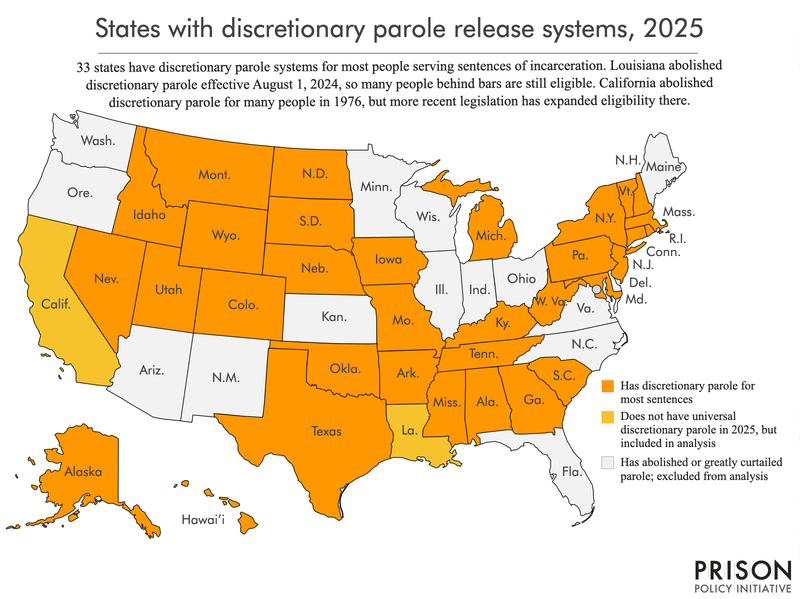- This topic is empty.
-
AuthorPosts
-
-
October 8, 2025 at 3:14 am #10846
Farrydesigner
KeymasterA new report from the Prison Policy Initiative pulls back the curtain on parole release systems, providing the most accessible and comprehensive source to date for comparing how these essential — and often dysfunctional — release mechanisms are set up in 35 states. The report, Parole in Perspective, reveals that parole releases are on the decline in nearly every state that uses discretionary parole, highlighting elements of the process that contribute to this urgent problem.

Parole in Perspective comprises two parts, each honing in on different elements of parole release. The first explores the makeup of boards and how they conduct hearings. The second dives into new data on hearings and grants, and the factors that boards consider — including their discretion — in determining whether someone will be released.
The report contains four essential data tables showing:
- How parole boards in 35 states are composed and how they hold hearings;
- The number of parole hearings and grants in every state from 2019-2024;
- How parole boards compare on the criteria they use to determine release;
- The exact statutory text guiding parole boards’ decisionmaking in every state.
Parole in Perspective coincides with the Prison Policy Initiative and MacArthur Justice Center’s release of their Principles for Parole Reform, a guiding “North Star” document designed to help activists and policymakers identify priorities for reform in their states.
Both the new report and the Principles for Parole Reform identify crucial flaws in parole systems today, including:
- Relying too heavily on factors outside of applicants’ control — such as “the severity of the offense” or a perception that release would “diminish the seriousness of the crime”;
- Making irrational parole decisions in favor of keeping applicants locked up, often flying in the face of what risk assessment tools recommend;
- Stacking boards with law enforcement professionals, while ignoring the perspective of people with experiences of incarceration;
- Increasingly holding virtual rather than face-to-face hearings, or worse, not affording parole applicants a hearing at all.
“Despite their differences, all discretionary parole systems have serious design flaws that lead to an unfair preparation and hearing process for incarcerated people,” said report author Leah Wang. “By shining a light on boards and their practices, we hope to lay a path toward making these systems real tools for decarceration.”
The full report is available at https://www.prisonpolicy.org/reports/parole.html.
-
-
AuthorPosts
- You must be logged in to reply to this topic.